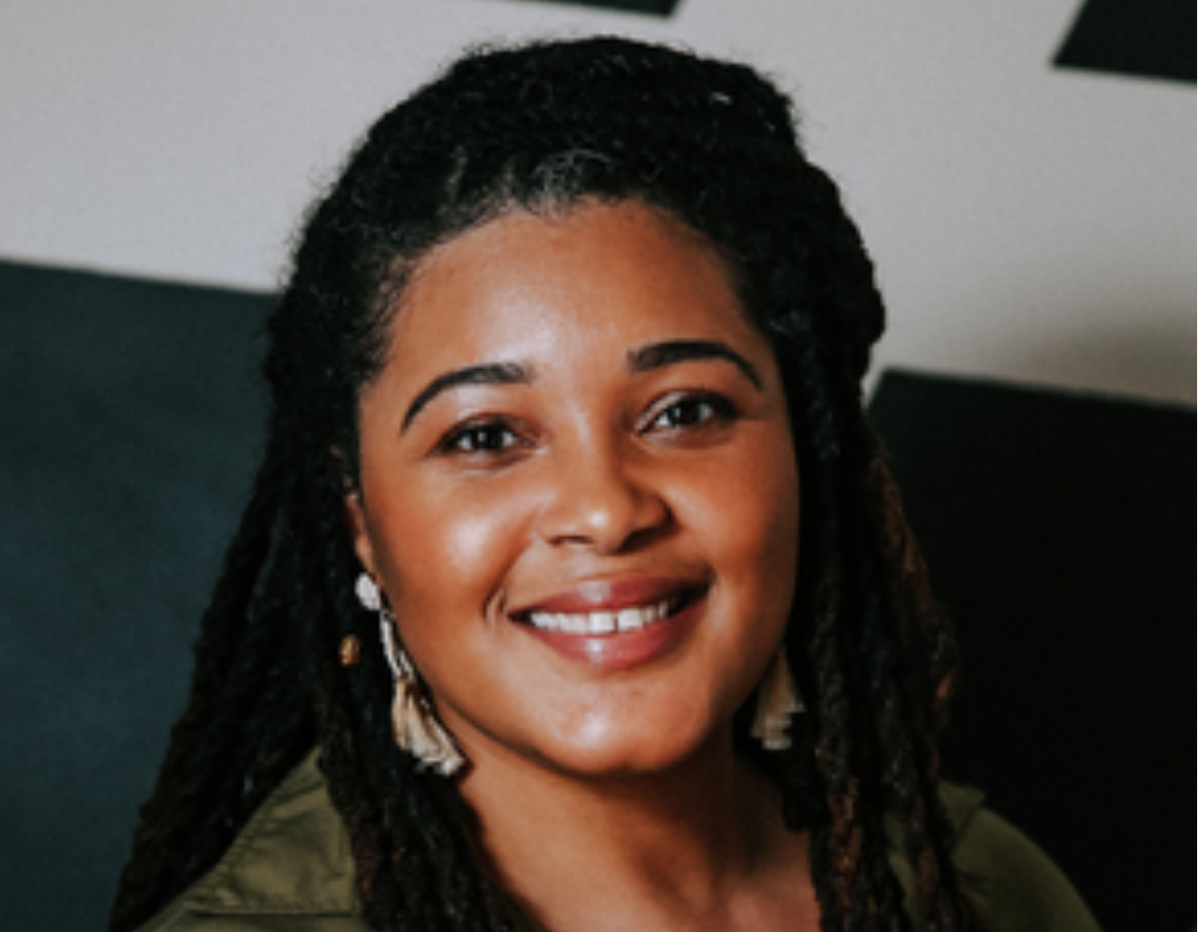
Tonjie Reese was recently promoted to her new role, Director of Learning and Practice. She leads and equips community members with the skills, empathy, and tools necessary to contribute to public safety ecosystems. She is also the founder of eleven24, a non-profit organization dedicated to preventing interpersonal violence. Sierra Scott recently sat down with Tonjie Reese to talk about her journey in the work and what she envisions and hopes to accomplish in this new role.
What kind of work were you doing in your previous position as a capacity building specialist and how did it transition into your new position, director of learning and practice?
As a capacity building specialist, a lot of that work was working directly with our grassroots partners to support building infrastructure and relationship building. We have historically been heavy on supporting folks with creating grants and supporting them around grant funding, but on the capacity building team, we were trying to shift things beyond grant writing because it’s one thing to get a grant, and a whole other thing to operate an organization and have it be sustainable…We have been doing a lot of accompaniment work and I felt like there needed to be some level of macro engagement which also fit into EJUSA’s longer-term vision of building out a resource library.
Since I am in Detroit, and a lot of folks that we were working with were in Louisiana, I felt like there were opportunities for us to keep in contact with folks and continue to offer some type of capacity building resource. This is how the peer learning labs came about.
We had an opportunity to integrate the peer learning labs into a grant we just secured with the Bureau of Justice Assistance, an agency that provides leadership and assistance to local criminal justice programs. Now the grantees would have their own learning labs. With the continued expansion of the labs, building out the resource library is a priority (the resource library is a collection of learning tools including peer learning lab recordings, handouts, and toolkits that the team will be building in the future). It also allows our EJUSA team to create their learning labs and be the drivers in it; this is the foundation in building a training institute, while also building out a fellowship program.
My vision and thought for learning and practice overall is to create a community of learning, where individuals, empowered by knowledge and practice, actively engage in violence intervention and justice transformation. Learning and practice will provide those who have been historically marginalized with the opportunity to learn theories, concepts, and competencies alongside their peers – while also developing practical solutions for their unique communities. This involves collaborating with individuals within our EJUSA team and grassroots organizations we partner with. I imagine this training institute for facilitating dialogue and ways to create collaboration. The purpose of the institute is for community members to feel empowered.
Are there any success stories or impactful moments that have happened during the peer learning labs?
We have had the passing of information and some referrals from our staff…[for example] , there was a referral from somebody that we have been doing capacity work with, and we had one on one coaching conversations centered on building up his organization. I mentioned to him that Giving Tuesday was coming up and he was like, “Oh my gosh, I am not ready for that.” I immediately sent him our recording of our Giving Tuesday Learning Lab and he ended up raising a good amount of money…That was a resource for us last year that he was able to benefit from…and that has been a highlight. Also, a highlight has been the overall feedback through the surveys I send out. The surveys have been overall positive and folks are happy to have a space to learn from. After attending the sessions, participants have shared that the content is useful for them and they left feeling more confident about a topic. Even if someone doesn’t attend the live session, they have access to the recording, and we always have replays on the recordings.
Is there anything else that you would like to speak about when it comes to learning and practice?
One thing I’m excited about with learning and practice, which is something we do at EJUSA that is kind of natural, is experiential learning and the field trips we take. I have been to museums with folks at EJUSA more than a couple of times, like recently we went to Congo Square in New Orleans where we learned about the history and its connection to Haiti. I call them “adult field trips” and that to me is also peer learning spaces. It’s where we can have learning exchanges, knowledge exchanges, and discussions while going into actual communities and different places. This is how I see the peer learning labs expanding and also how folks can use this in their communities.
For future learning labs, we’ll lean into topics that are interesting to our partners and are focused on building infrastructure, healing, and intersections of community violence. The learning opportunities are endless, and I’m excited to learn with our team and partners. I’m also excited to build out our fellowship program, which will provide assistance to small-community based organizations in need of administrative, organizational, and fundraising support.
Next Learning Labs:
Strategies for Community Outreach
Reparations: Past, Present, and Future
Join our community today to receive exclusive insights, funding opportunities, and expert tips for grassroots organizations directly from Equal Justice USA’s Capacity Building team. Let us support you in developing and sustaining your programs – sign up now to stay informed!



